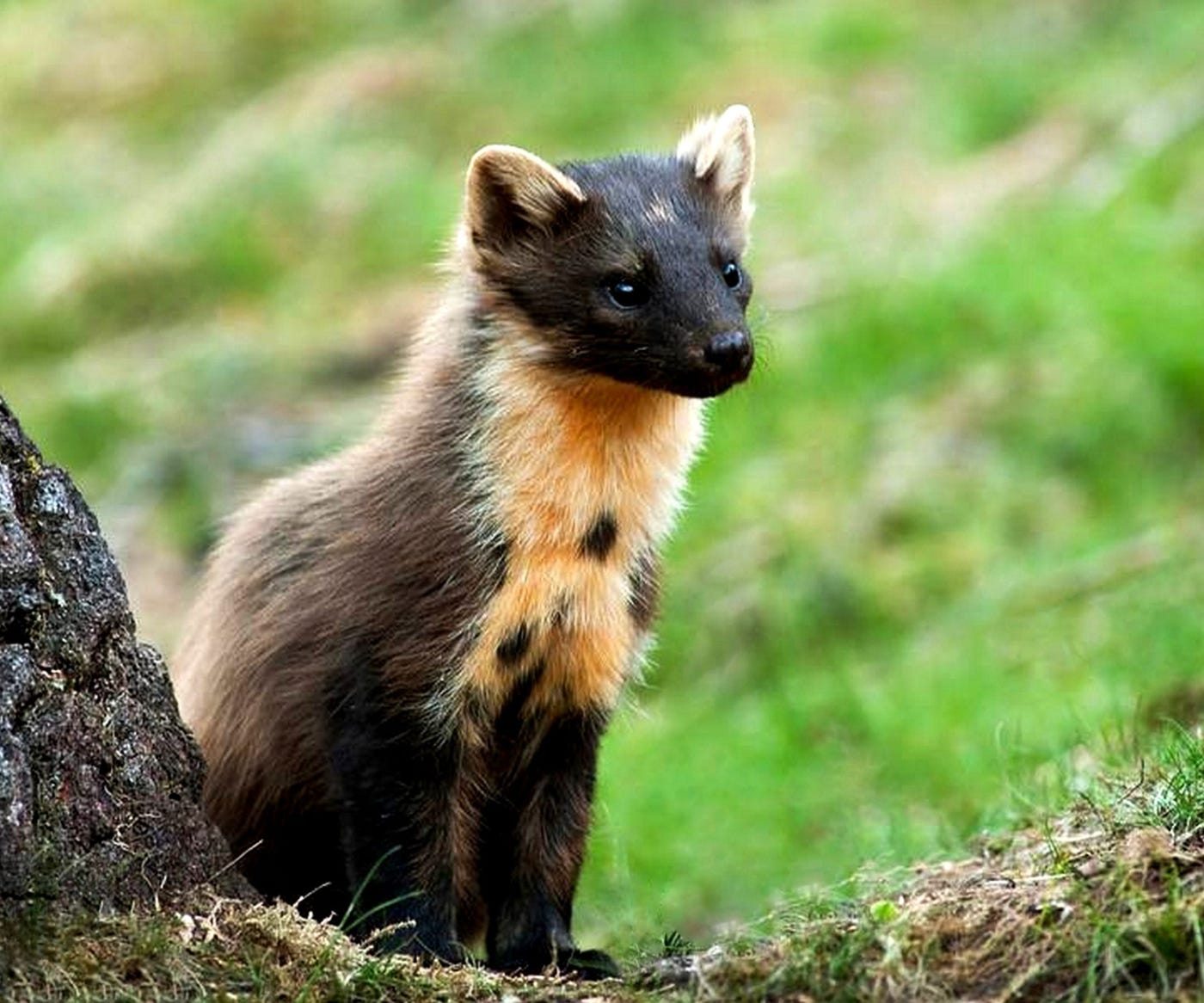It's all about Scottish wildlife this week
Including; rare pine marten spotted in national park; where are all the butterflies?; stories of our native trees; volunteers tend to Loch Lomond; and much much more...
Hello!
This week we have a whole lot of stories on Scottish wildlife and the great outdoors; from rare sightings of the elusive pine marten in one of our national parks, to a round up of our native trees (and how to spot them), to the more worrying decline in numbers of butterfly and insect populations in Scotland (and how we can help).
These articles were sent to us by our partners who are taking part in the 100 Days of the Green Transition project - focussing on climate change and how local people are making, or can make, a difference.
While a few of the stories this week highlight declining populations, don’t fret, because this project has opened my eyes to the sheer amount of positive action that’s being taken on the local level.
So enjoy, and share - we could all use a little boost this winter.
-Devon
We’ve also made the move to BlueSky! Why not join us there and give us a wee follow:
🩵 @scottishbeacon.bsky.social | ✖️ @scottishbeacon | 🟣 @SBonIG | 🔵 @SBonFB
100 Days of the Green Transition
Over the course of three months, our members are sharing 50 stories of how local people are making a big difference when it comes to tackling issues around climate change. Here are the latest stories to come from this project:
The Clydesider: Rare pine marten spotted in Scottish national park is good news for the native red squirrel population.
Pine martens, the most elusive mammal found in the UK, has been spotted in Balloch Castle Country Park…
The Lochside Press: Volunteers made a difference at Loch Lomond
Volunteers joined in a session organised by the Friends of Loch Lomond and The Trossachs, tending to the Tom Weir garden, where they planted 150 heathers…
The Clydesider: Where are all the butterflies?
Butterfly populations in Scotland have noticeably dropped, writes Jim Duncan. But what does this mean and what can we do to help…
The Clydesider: Stories of our native trees
Clydesider Magazine contributor, Breeze, shares where and why we can all enjoy some of Scotland’s native trees…
Keep an eye on our 100 Days project page, as we publish the last of our investigations this week.
More news from our partners
Migrant Women Press: MWP launch 16 Days of Activism Against Gender-Based Violence Campaign
The Edinburgh Reporter: Hundreds of school children evacuated due to emergency repairs
The Orkney News: Kindness exhibition gets set to open its doors on Thursday 27 from 11am to 4pm
Shetland News: Shetland Islands Council says it is well prepared for winter road conditions after an Arctic blast of snow last week
Greater Govanhill: The benefits of birthing at home, and the invaluable resources and networks available to parents in Glasgow
and finally…
The Edinburgh Minute: Ian Rankin, author of Rebus, shares his endorsement for the Edinburgh Minute via email
Elsewhere in local news…
Main recommendations
The House of Lords Communications and Digital Committee published its report 'The future of news'. The main recommendations include:
Support local media: This could include tax breaks for hiring local reporters, journalist training schemes and expanded Local Democracy Reporting Service.
Champion responsible AI: The Committee criticises “tepid” previous efforts to resolve copyright disputes and calls for updated legislation to help news providers strike mutually beneficial deals with AI firms. This should include transparency measures to let rightsholders check if their material has been used to train AI, alongside new sanctions for rule-breaking.
Take competition seriously: The Competition and Markets Authority should investigate allegations of anti-competitive practices by big tech firms. Ofcom’s rules on media plurality should be updated to take account of AI firms’ growing influence in creating news through generative AI summaries.
Remain proportionate on mis/disinformation: Measures to tackle disinformation should not undermine confidence in free speech or fuel public distrust. The Committee cautions against overreliance on technical fixes such as watermarks, and encourages more effort on long-term societal resilience and more muscular deterrence against foreign adversaries.
What do you think should be done?






